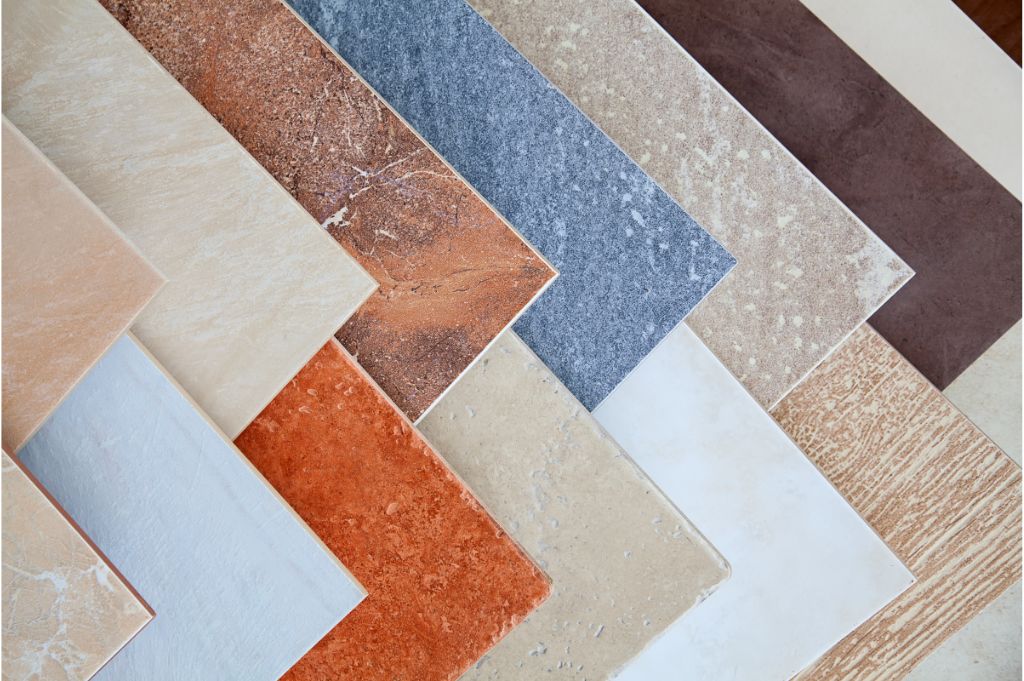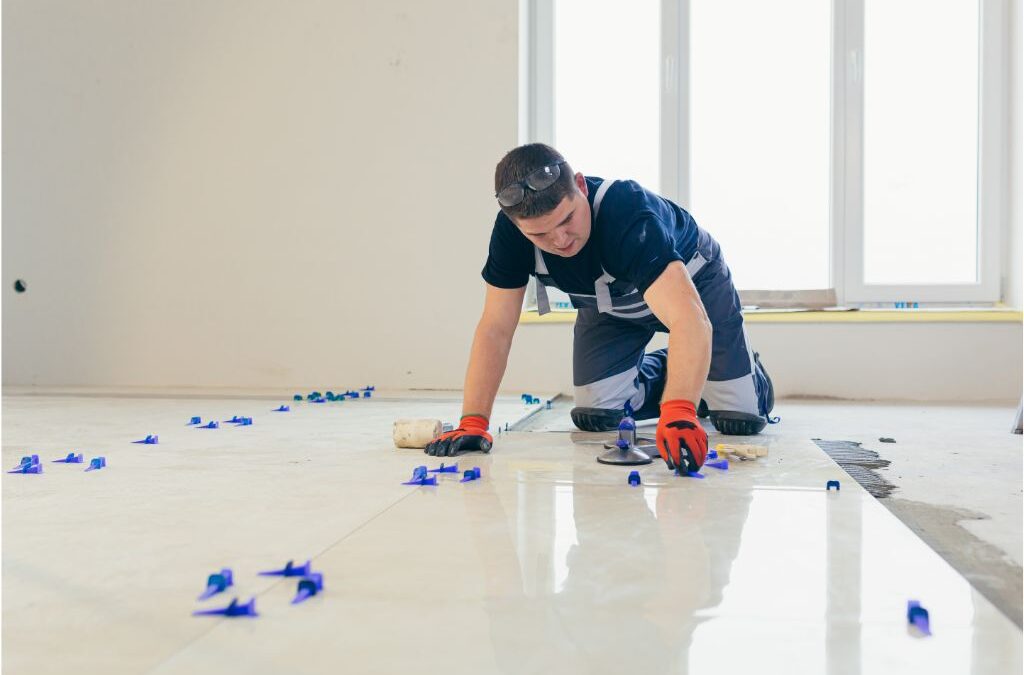If you’re considering tile flooring for your home, you’ve likely encountered the debate between porcelain and ceramic tiles. Both porcelain and ceramic tiles are popular choices, but which one is better suited for your needs? Let’s dive into the characteristics of each to help you make an informed decision.
Understanding the Basics
What is Porcelain Tile?
Porcelain tile is a type of ceramic tile that is made from finer clays and is fired at higher temperatures. This process results in a denser, more durable material compared to traditional ceramic tiles.
What is Ceramic Tile?
Ceramic tile, on the other hand, is made from a mixture of clays and other natural materials. While it is also durable, it is generally less dense than porcelain and may be more prone to chipping or cracking.

Porcelain and Ceramic Tiles – Nadine Floors
Strengths of Porcelain Tiles
1. Durability
Porcelain tiles have a water absorption rate of less than 0.5%, making them highly resistant to moisture. This durability makes them ideal for areas prone to water exposure, such as bathrooms and kitchens.
2. Through Body Color
Unlike ceramic tiles, porcelain tiles often have a “through body color,” meaning that the color runs throughout the entire tile. This feature helps disguise any chips or damage that may occur over time.
3. Versatility
Porcelain tiles can be used both indoors and outdoors, thanks to their dense composition. They are suitable for a wide range of applications, including floors, walls, and countertops.
4. Longevity
Due to their dense nature and low water absorption rate, porcelain tiles are known for their longevity. They can withstand heavy foot traffic and are resistant to stains and scratches, making them an excellent investment for your home.

Porcelain and Ceramic Tiles – Nadine Floors
Strengths of Ceramic Tiles
1. Affordability
While porcelain tiles offer superior durability, ceramic tiles are often more budget-friendly. This makes them an attractive option for homeowners looking to save on upfront costs.
2. DIY-Friendly Installation
Ceramic tiles are easier to cut and install compared to porcelain tiles. They can often be cut with a basic tile cutter, making them accessible to DIY enthusiasts.
3. Design Options
Ceramic tiles come in a wide range of colors, patterns, and textures, allowing for greater customization. This versatility makes them a popular choice for homeowners looking to add a personal touch to their space.
4. Heat Retention
Due to their composition, ceramic tiles tend to retain heat better than porcelain tiles. This can be advantageous in colder climates or rooms where underfloor heating is installed.
Limitations of Porcelain Tiles
1. Cost
The durability and quality of porcelain tiles come at a price. They are typically more expensive than ceramic tiles, which may put them out of reach for some homeowners.
2. Installation Difficulty
Due to their density, porcelain tiles require specialized tools and expertise for installation. This can add to the overall cost if professional installation is necessary.
3. Weight
Porcelain tiles are heavier than ceramic tiles, which may require additional structural support when installed on upper floors or in areas with weight restrictions.
Limitations of Ceramic Tiles
1. Water Absorption
Ceramic tiles have a higher water absorption rate compared to porcelain tiles, making them less suitable for wet areas. Prolonged exposure to moisture can cause them to crack or warp over time.
2. Visibility of Damage
Unlike porcelain tiles, ceramic tiles do not have a through body color. This means that any chips or scratches will be more noticeable, potentially detracting from the overall appearance of the floor.
3. Lifespan
While ceramic tiles are durable, they may not last as long as porcelain tiles due to their higher susceptibility to damage and wear over time.
Conclusion: Porcelain and Ceramic Tiles

Porcelain and Ceramic Tiles – Nadine Floors
When it comes to choosing between porcelain and ceramic tiles, there is no one-size-fits-all answer. Porcelain tiles offer superior durability and moisture resistance, making them ideal for high-traffic areas and outdoor use. However, ceramic tiles are more budget-friendly and easier to install, making them a practical choice for DIY projects.
Ultimately, the decision will depend on your budget, design preferences, and intended use. Whichever option you choose, be sure to consider factors such as durability, maintenance, and long-term cost when making your decision.
FAQs (Frequently Asked Questions)
- Are porcelain tiles more expensive than ceramic tiles?
- Yes, porcelain tiles tend to be more expensive due to their higher quality and durability.
- Can ceramic tiles be used outdoors?
- While ceramic tiles can technically be used outdoors, they are more prone to water damage and may not hold up as well as porcelain tiles in outdoor environments.
- Are porcelain tiles difficult to clean?
- Porcelain tiles are generally easy to clean and maintain, requiring only regular sweeping and occasional mopping.
- Can I install porcelain tiles myself?
- While it is possible to install porcelain tiles yourself, it is recommended to hire a professional for best results, especially if you have limited experience with tiling.
- How long do porcelain and ceramic tiles typically last?
- With proper maintenance, both porcelain and ceramic tiles can last for many years, making them a durable and long-lasting flooring option.
Looking to upgrade your flooring in Plano,TX with beautiful porcelain or ceramic tiles? Contact Nadine Floor Company today at (469) 666-4530 for expert advice, quality products, and professional installation services. Transform your space with our wide assortment of tile options. Don’t wait, call us now to schedule a consultation!

